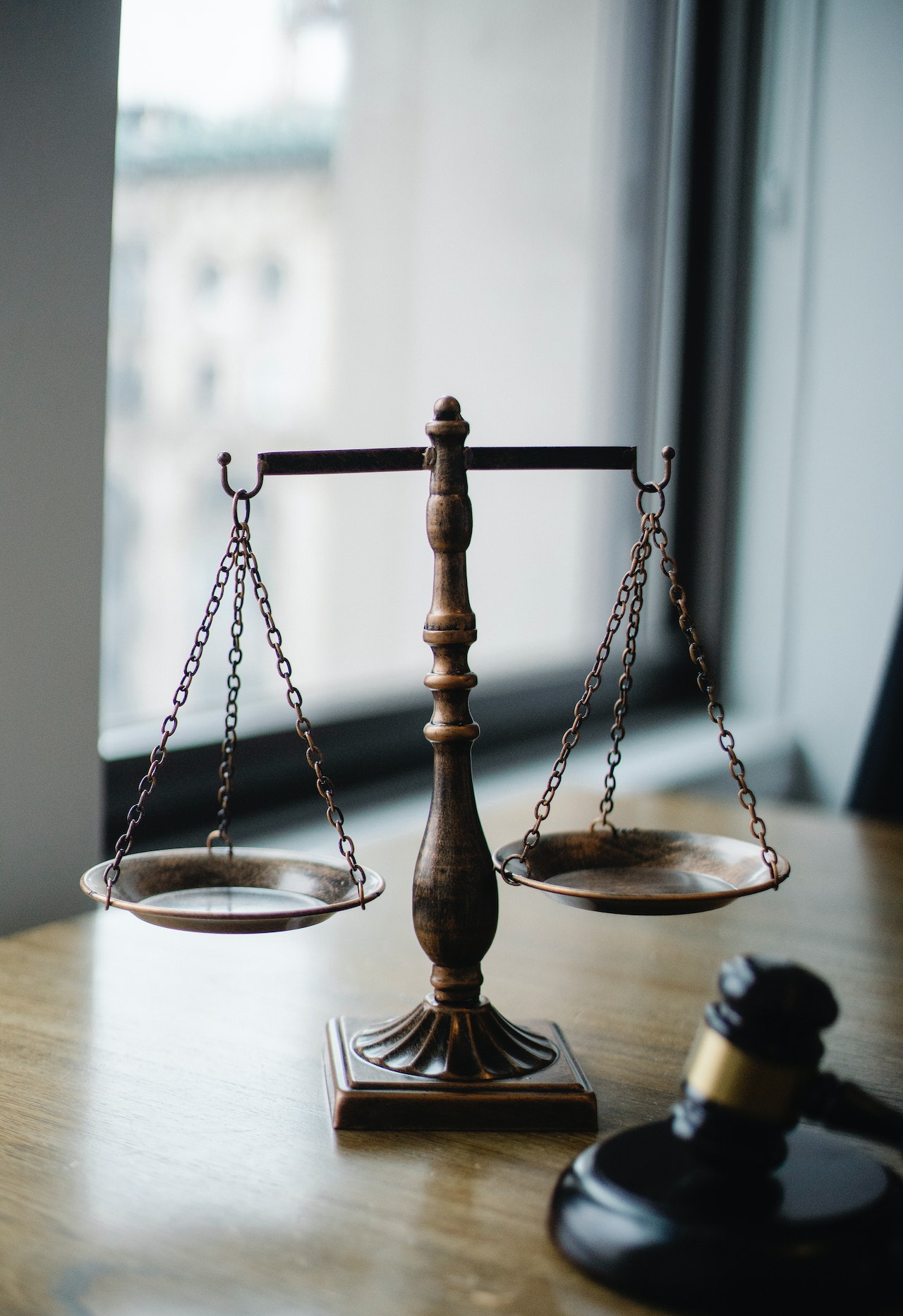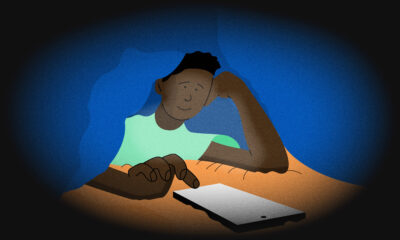Features
#SurvivingTerdoo – What Does The Law Say?

A social media user, @TheNnma, has been calling out her alleged sexual abuser for many days. His name is Terdoo Oluwadara Bendega. In a series of tweets, The Nnma claimed that Terdoo’s mode of operation is revenge porn, sexual abuse, manipulation and blackmail. She said he “harassed and stalked me for months after I left him, sent his now ex after me, and sent me explicit pictures and videos of myself I never knew existed to try shut me up.”
Several investigations have been done on Terdoo Bendega who has since deactivated his Twitter and LinkedIn accounts, and now seems to have disappeared from all social media. Bendega has been revealed to have allegedly gone through several burner porn accounts and, according to Document Women, his complainants have described his modus operandi: “He drugs women, records sexts of them without their consent, and then blackmails them into doing his bidding.”
The hashtag, #SurvivingTerdoo, has since gained momentum on social media and local news, with more people amplifying the plight of @TheNnma and other women affected.
In the past couple of days, social media have been peopled with stories of sexual molestation and harassment. On the heels of #SurvivingTerdoo came the allegations against Pelumi, who was accused of (allegedly) collecting and selling nudes of women without their consent on a Telegram channel she created. She has since denied all allegations.
Days after this, an Instagram comedian, @official_simigo123 made a paedophilia skit about a 2-year-old girl (to whom they had attached artificial butts) being raped by her landlord. In an apology video, the skit makers said, “Our intention was not to promote child abuse, we just did it.” The video has since been taken down amidst public outrage.
Sexual violence and abuse are rife in our society. As of 2022, UNICEF still reported that one in three women have experienced physical, sexual or intimate-partner violence; are victims of trafficking, or are subject to violent social norms. Statistics have also shown that the majority of these women do not get justice, whether or not they speak out.
In search of justice, these sexual allegations find their way to social media where the victims believe the perpetrators can be named and shamed, or that tagging the social media handles of the Nigerian Police Force will eventually get them justice.
_
If there is one thing that recent happenings on Twitter have shown, it is that the sensitisation about what constitutes sexual violence, assault and harassment needs to be further (and consistently) emphasised. This digital space of ‘cook, violence, chef’ not only waters down victims’ claims but also casts a shadow of doubt on evidence provided and makes a ridicule of the situation. The graveness of the assault is diluted into ‘violence’. Perhaps it is because people believe social media is simply for fun and will not give you the justice you deserve. But we have also seen how passionate people can be about the cause they believe in. If there they are reducing issues of sexual violence, nudity and revenge porn to ‘gist’, ‘violence’ and ‘cook’, there is only one explanation for it: they do not think the issue of sexual abuse is a big deal. They are yet to come to terms with the fact that actions like sharing explicit or sexual, images or videos without the consent of the person in the image, threatening to upload a person’s sexual activities on the internet, and possessing and/or sharing child pornography are crimes punishable by law.
The Nigerian constitution is clear. Fundamentally, ‘the privacy of citizens, their homes, correspondence, telephone conversations and telegraphic communications is guaranteed and protected’ under Section 37 of the constitution.
Section 23(2) of the Cybercrimes (Prohibition, Prevention, Etc) Act 2015 says, ‘Any person who knowingly makes or sends other pornographic images to another computer by way of unsolicited distribution shall be guilty of an offence and upon conviction shall be sentenced to one (1) year imprisonment or a fine of two hundred and fifty thousand Naira or both.’ This provision prohibits the circulation of explicit content across computers and mobile phones.
This means that recording (without consent) a sexual act, blackmailing the victim with it, sharing it on your WhatsApp or Telegram group, or inviting your friends to watch it is an offence, one that is punishable by law. If you’re one of those yelling, ‘Where’s the video, abeg send am to me,’ you are equally committing a crime.
Perhaps when we begin to see these actions as punishable by law and these perpetrators as actual criminals, we’ll realise that issues of harassment – online or offline – are not to be taken lightly, or made into skits.
Thankfully, we now live in a society where survivors don’t have to walk alone. We have organisations like STER (Stand to End Rape Initiate), The Mirabel Centre, and WARIF (The Women at Risk International Foundation) and many more who are helping survivors get justice and at the same time providing them with the care they need to navigate these trying times. We also have organisations that provide legal support for the victims. DSVA (The Lagos State Domestic and Sexual Violence Agency) addresses sexual and domestic issues. There is also FIDA (The International Federation of Women Lawyers) that helps protect women’s rights. See more here.
What can we do about #SurvivingTerdoo? Amplify @TheNnma’s voice and force the authorities to swing into action. And this goes for all survivors when they speak up. Don’t watch or circulate the videos/images, and don’t scream ‘cook’ – there is nothing delicious about abuse.
***





















